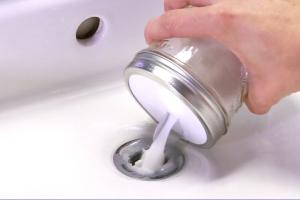Effective Solutions for Clogged Kitchen Sinks: A Comprehensive Guide

-
Quick Links:
- Understanding Kitchen Sink Clogs
- Common Causes of Clogged Sinks
- Preventative Measures
- DIY Solutions for Unclogging
- When to Call a Professional
- Real-World Case Studies
- FAQs
Understanding Kitchen Sink Clogs
A clogged kitchen sink can disrupt daily routines and lead to more significant plumbing issues if not addressed promptly. Understanding the mechanics of your sink and how clogs occur is essential for effective resolution.
How Sinks Drain
Most kitchen sinks operate using a simple gravity drain system. Water flows through pipes, relying on gravity to guide it away from your home. However, foreign materials can accumulate and create blockages, leading to a clogged sink.
Common Causes of Clogged Sinks
Identifying the root cause of a clog is vital for effective resolution. Here are some of the most common culprits:
- Food Waste: Large particles or fibrous materials can easily block pipes.
- Grease Buildup: Cooking oils and grease can solidify and lead to clogs.
- Hair: Strands can accumulate, especially if the sink is used for washing hair.
- Soap Residue: Soap can combine with grease and debris to form sludge.
- Foreign Objects: Items like utensils or toys can accidentally fall into the sink.
Preventative Measures
Preventing clogs before they occur is far easier than dealing with them post-factum. Here are several strategies to keep your sink flowing smoothly:
- Use a Drain Strainer: Catch food particles before they enter the drain.
- Regular Cleaning: Clean the sink and drain regularly with hot water and vinegar.
- Avoid Pouring Grease: Dispose of cooking oils in the trash instead of down the drain.
- Run Hot Water: After washing dishes, run hot water down the drain to help dissolve grease.
DIY Solutions for Unclogging
If your sink is already clogged, don’t panic. Here are some effective DIY methods to clear the blockage:
1. Boiling Water
Pouring boiling water down the drain can help dissolve grease and soap buildup. Repeat this several times for stubborn clogs.
2. Baking Soda and Vinegar
- Pour one cup of baking soda down the drain.
- Follow with one cup of vinegar.
- Cover the drain and let it sit for 30 minutes.
- Flush with hot water.
3. Plunger
A good plunger can work wonders. Ensure there’s enough water in the sink to cover the cup of the plunger, then plunge vigorously.
4. Plumbing Snake
If the clog persists, a plumbing snake can reach deeper into the pipe. Insert the snake into the drain and turn it clockwise until you feel resistance, then pull it out while rotating.
When to Call a Professional
If DIY methods fail and the clog persists, it may be time to call in a plumber. Signs that indicate you need professional help include:
- Multiple sinks are clogged simultaneously.
- Unpleasant odors emanating from the drain.
- Water backing up into other fixtures.
- Frequent clogs despite regular maintenance.
Real-World Case Studies
To illustrate the effectiveness of these solutions, let’s look at a few case studies from homeowners who successfully tackled clogged sinks:
Case Study 1: The Grease Trap
After struggling with a persistent clog caused by grease, Sarah implemented a regular maintenance schedule involving hot water flushes and using a drain strainer. This proactive approach significantly reduced clogs.
Case Study 2: The Family Sink
The Johnson family faced frequent clogs due to hair and food particles. They decided to use a plumbing snake and a combination of baking soda and vinegar, resulting in a clean and well-functioning sink.
FAQs
1. How often should I clean my kitchen sink to prevent clogs?
Regular cleaning is advisable; once a week is a good rule of thumb.
2. Can I use chemical drain cleaners?
While they can be effective, they may also be harsh on plumbing and the environment. Use them cautiously.
3. What are the signs of a serious plumbing issue?
Frequent clogs, unusual noises, or foul smells can indicate a more serious issue.
4. Is it safe to use a plunger on my kitchen sink?
Yes, but ensure there is enough water to create a seal.
5. Can I prevent clogs by running cold water while using the disposal?
Yes, running cold water helps solidify grease and keeps it from sticking to the pipes.
6. How do I know if I need a new disposal?
If it’s frequently clogging and making unusual noises, it may need replacement.
7. What should I do if my sink is leaking?
Identify the source of the leak and consider professional help if you cannot fix it yourself.
8. Can roots in my plumbing cause clogs?
Yes, tree roots can invade and block pipes, creating significant plumbing issues.
9. Are there home remedies for drain odors?
Baking soda and vinegar can help neutralize odors effectively.
10. What is the best way to dispose of cooking grease?
Always dispose of cooking grease in a sealed container and throw it in the trash.